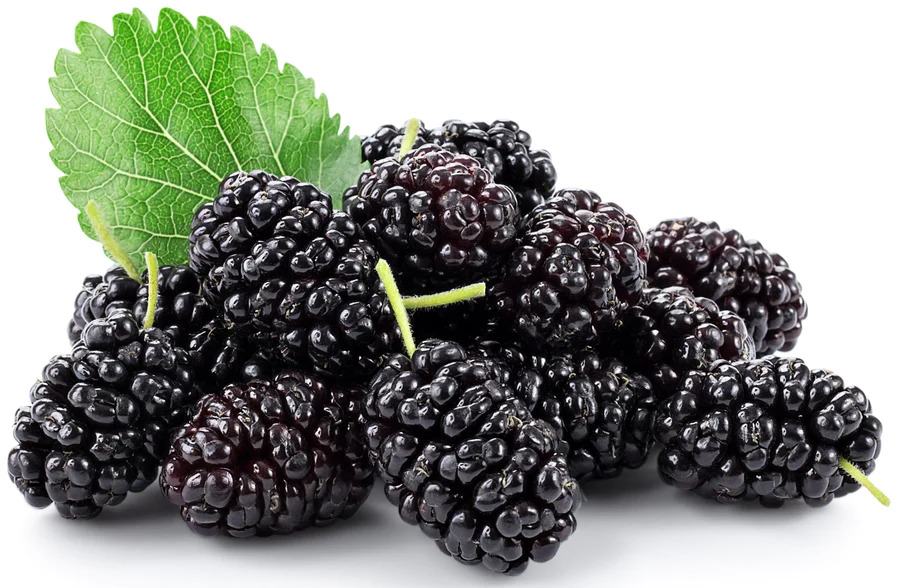If April is here, can mulberries be too far behind? In their sweetness and pungency of taste, the richness of colour, and the soft juicy flavour, the mulberry is a treat, albeit an ephemeral one. Ripe fruit that has to be eaten fresh comes in mid-April and is gone by mid-May. The mulberry is a lot of fun with cocktails. To make the famous mulberry bourbon, all you need is lots of ice, 30 grams of fresh mulberry pulp, 60 mL of your favourite gin (I go with Tenqueray 10), a dash of lime, and a tin of tonic water. The result beats the heat and the refreshing cocktail comes with that sweet and tangy, almost decadent flavour to die for. If you are a whisky lover, there is a bomb of a recipe that marries the distinct smokiness of a bourbon with the sweet tart of the fresh pulp. Add lots of ice, and it’s a perfect summer cocktail.
Mulberry fruit has been around for thousands of years and has played a significant role in many cultures the world over. In ancient Indian texts, mulberry fruit is referred to as “tutti,” and it is mentioned in various Ayurvedic texts. In India, for over 3000 years, natural remedies have been used to treat various ailments, and mulberry is referred to as a “super food”. In 2020, celebrity chef Jamie Oliver pronounced the mulberry his favourite fruit on the planet.In its composition, mulberry fruit is a rich source of vitamins and minerals, including vitamin C, vitamin K, potassium, and iron. It also contains antioxidants, which help to protect the body against free radicals
In many cultures, mulberry fruit is associated with fertility and abundance. In ancient Greece, the fruit was dedicated to the goddess Demeter, who was the goddess of fertility and agriculture. In some parts of Europe, mulberry trees were planted in the gardens of newlyweds to bring them good luck and fertility.
And what would the famed Silk Road be without the mulberry? For its leaves, especially those of the white mulberry, are the only things that silkworms eat. For many years, Pune was the source of the Italian mulberry plant, and from those trees, a special jam was made that was exported to the United Kingdom. The jam and tarts find mention in the old cook books of Shimla and Landour.
The abiding charm of the short mulberry season is in the reminder it gives us of the simple pleasure of eating it off the tree, which modern lifestyle has passed us by. Maybe those memories of eating shahtoot as a kid in school, from the neighbourhood, or from your own garden with that rich, sweet, pungent flavour without a worry in the world linger in each of us. Doing so is an act that shrinks time. So enjoy it while it lasts.
Mulberries: The delicious summer cocktail
इस शब्द का अर्थ जानिये
- Advertisement -

